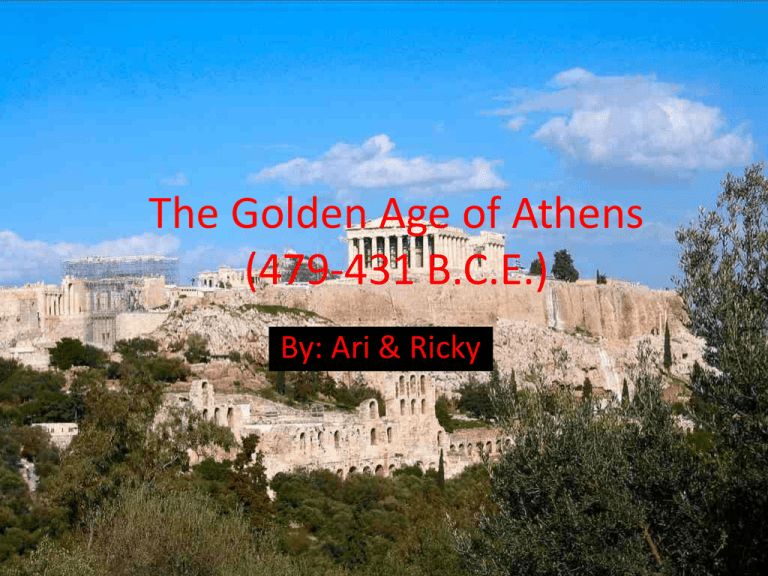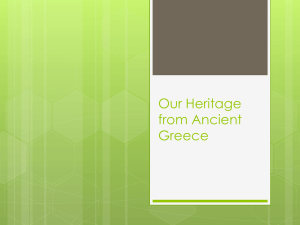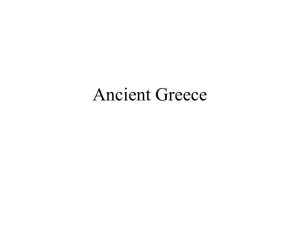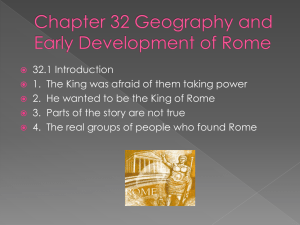The Golden Age of Athens (479-431 B.C.E.)
advertisement

The Golden Age of Athens (479-431 B.C.E.) By: Ari & Ricky Athens After the Persian Wars 1. What contributions did Pericles make to Athens after the Persian wars? One of Pericles's contributions was to direct the rebuilding of the city. 2. Why can Athens be called a city of contrasts? Many people lived in small narrow streets Greek Religion 1. Why would a person go to see an oracle? So that a god, Apollo, would give advice to them. 2. What did the ancient Greek believe about where gods and goddesses lived and what they were like? The Greeks believed that the gods lived on Mount Olympus and that they helped and protected them. 3. In what ways was religion a part of the everyday life of the ancients Greeks? The Greeks would ask them for help and protection. Greek Architecture 1. Why did the ancient Greek build temples like the Parthenon? They built it to honor their god, Athena. 2. Identify the types of Greek columns and one characteristic of each. Doric, Ionic, and Corinthian. 3. What features made the Parthenon one of the most beautiful temples in ancient Greece? They had a statue of Athena covered in ivoryand dressed in slothesdecorated with gold. Greek Sculpture 1. How did the styles of Ancient Egyptian statues influence those of the ancient Greeks? The Greeks made larger-than-life figures. 2. How did styles of Greek sculpture change over time? The Greeks sculptures added natural poses, showing muscles, hair, and clothing in much greater detail. 3. Who was Phidias, and what did he do? He design the group of sculptures and sculpted the statue of Athena. Greek Drama 1. How many people could a theater of hold, and how might its shape help a large audience? The theater could hold thousands of people. The theater was shaped like a bowl so everyone could hear. 2. Identify two ways in which ancient Greek drama differed from modern plays and movies. The Greeks only used men to act. The theaters were built on the sides of hills. Plays were often a form of competition. Greek Philosophy 1. What did Greek philosophers do? They talked and debated about ideas. 2. How did Socrates try to teach others? He asked questions about life. Other people accused him. 3. What happened to Socrates? Socrates was brought to trial and found guilty. He was sentenced to death. Greek Sports 1. What was the purpose of the Panathenaic Games? It included many sport events. 2. What events were held as part of the Panathenaic Games? Horse races, chariot races, foot races, and pancratium. 3. Identify one event that is still part of athletic competitions today, and then one event that is not. Boxing & foot racing. The end By: Ricky and Ari Teacher: Robert Class: History Titles: THE GOLDEN AGE OS ATHENS 29.2 Athens after the Persian wars 29.3 Greek Religion 29.4 Greek Architecture 29.5 Greek Sculpture 29.6 Greek Drama 29.7 Greek Philosophy 29.8 Greek Sports









